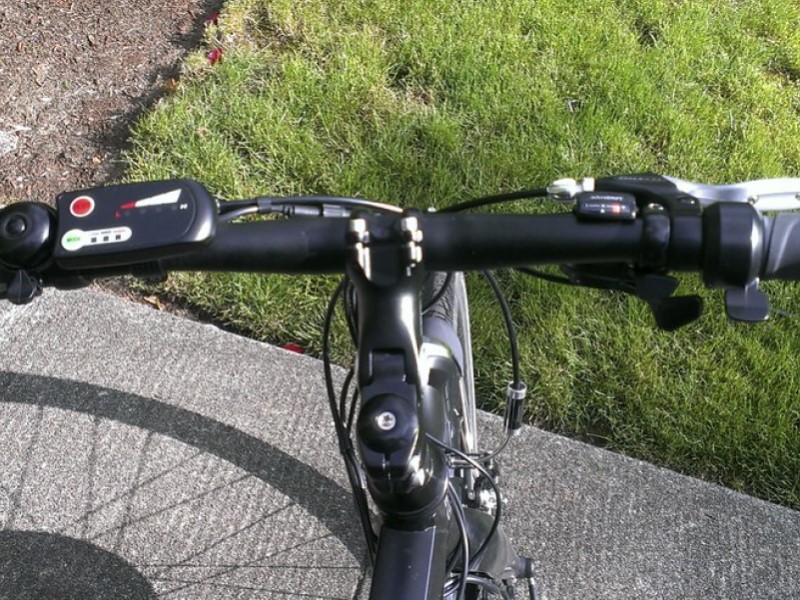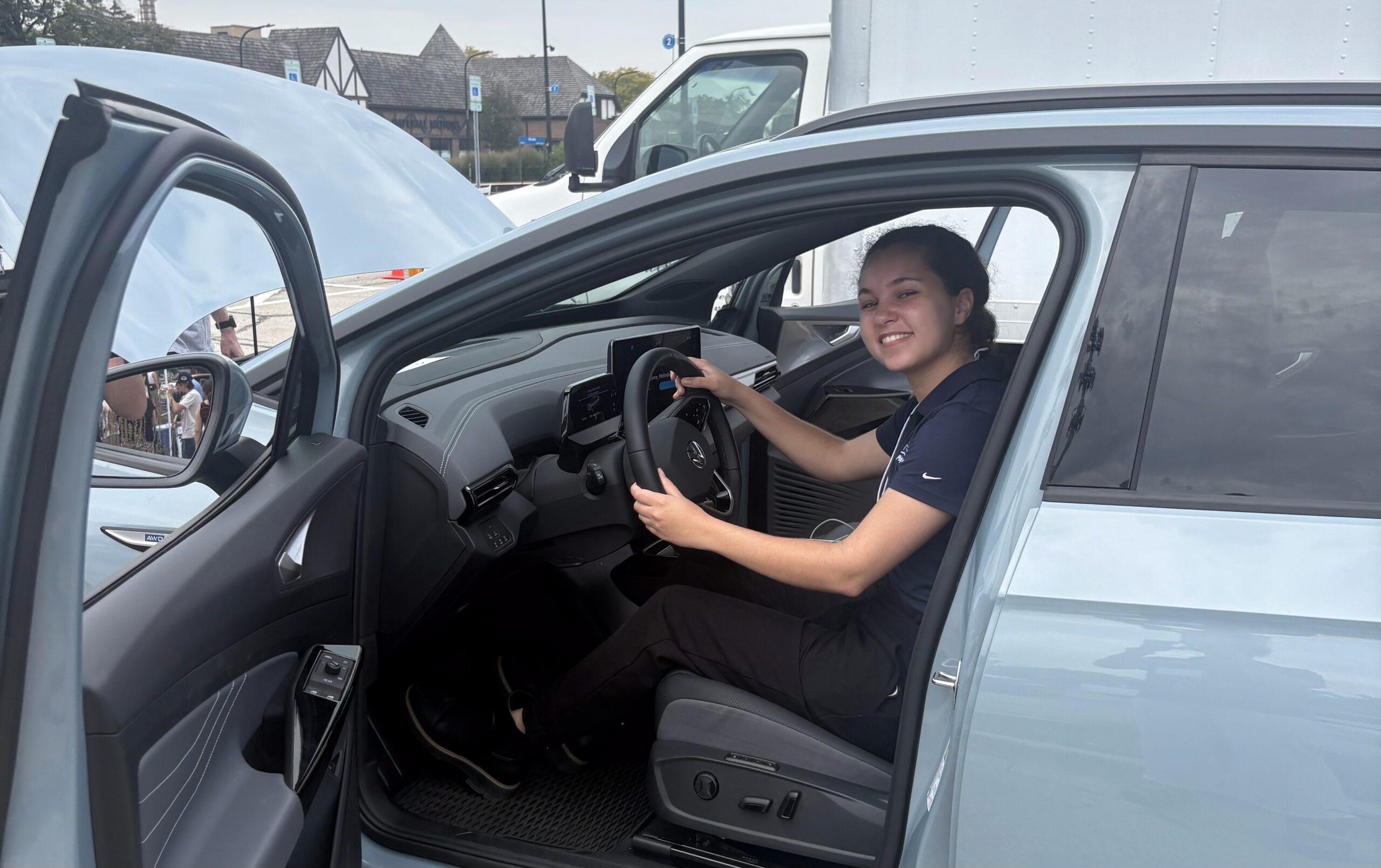E-bikes are just like a traditional bicycle, but with an electric motor. The rider can control how much electric power they want using pedal assist, which is a mode to help you pedal faster and easier. Generally, e-bike power ranges from 250 to 900 watts with an average maximum speed of 28 mph. Professional road racing cyclist Lance Armstrong can pedal at an average of 400 watts, and with little to no effort on an e-bike, you can easily pedal faster than Armstrong!
“In my city, I often go faster than the cars,” said Plug In America board member Marc Geller. He rides a Genze e-bike, which he uses for many errands for which he used to use an electric car.
“Our transportation system currently favors cars as a one-size-fits-all approach,” said Plug In America supporter Patrick Burton. “However, in many cases, a car is excessive. Bikes are a better point-to-point transportation mode because they take up less space and energy than cars. The energy needed to move a bicyclist and e-bike (with batteries and motor) is much, much less than the energy needed to move a single-occupancy car.”
By riding an e-bike across town, you can significantly lower your carbon footprint. A study conducted by European Cyclists Federation study, found that e-bikes emit 2.6 to 5 grams of carbon dioxide per mile than electric cars 150 grams per mile.

Photo credit: Patrick Burton
There is definitely an e-bike for everyone, from city and commuter bikes to mountain bikes, road bikes, cargo bikes, and even beach cruisers. Whatever your needs are, e-bikes can be a great way to get you from point A to point B. Burton rides his Electra Townie Commute Go!, to work in business attire, without needing to change clothes, and on the weekends, he rides longer distances for fun and to run small errands.
E-bikes’ pedal assist also makes it easier to ride over steep hills.
“I live close to work, but at the base of a steep hill,” said Burton. “I had considered biking to work when I first moved, but dismissed the idea as too impractical due to the hill. When e-bikes became widely available, they were an appealing way to get past that obstacle.”
The average range of e-bikes is between 20 to 100 miles per charge. However, for longer commutes, some e-bike models allow riders to exchange battery packs with a fully charged one. Charging speeds for e-bikes are pretty fast, about 2-6 hours for a full charge, depending on the size of the battery.
E-bikes also allow you to get exercise in.
“I still get more exercise on the bike with pedal assist than I would sitting in a car,” says Burton. “Even though it isn’t a sweaty workout, I am moving and staying active during my commute.”
Plug In America board member Jay Friedland sometimes rides his RAD bike around town without the pedal assist for an extra workout.
“It’s pretty great and when you start to feel tired, you can turn on the pedal assist,” Friedland said.
Just like electric motorcycles, e-bikes have been a hit throughout 2020. A recent report by MarketsandMarkets says the global e-bike market size is projected to grow from 41.1 billion in 2020 to 70 billion by 2027. Many people are looking for affordable alternatives to public transportation, like e-bikes which are considered safe, convenient, and eco-friendly. E-bikes might not replace your car for everything, but they’re a great way to reduce your carbon footprint and have fun!
Photo credit: “EG Zurich 350ix Hybrid e-Bike” by citymaus is licensed under CC BY-ND 2.0


